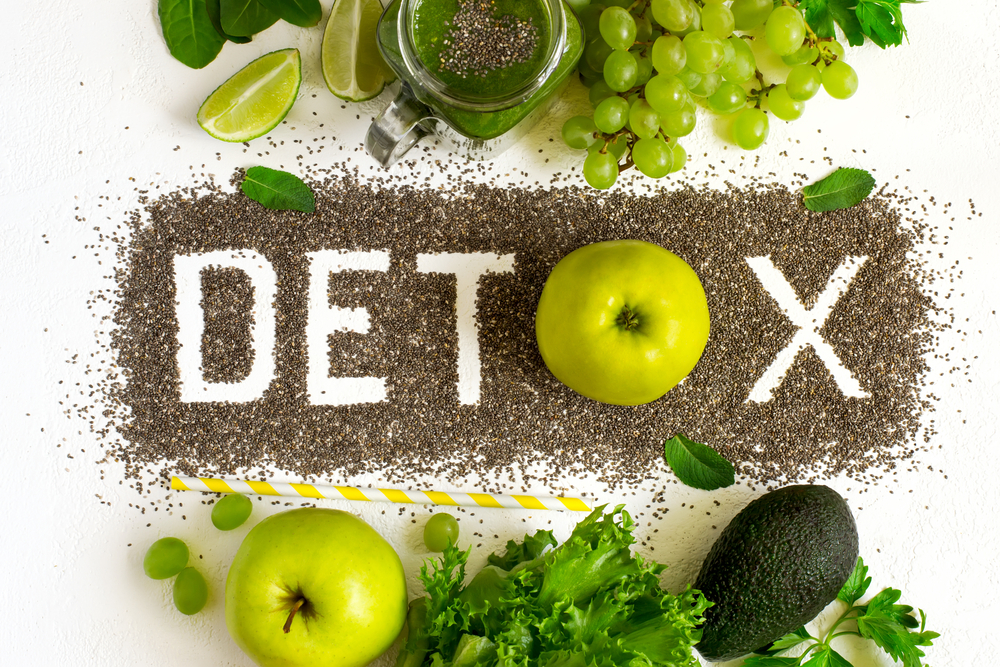
Detox diets have become increasingly popular in recent years, with promises of cleansing the body, boosting energy, and even promoting weight loss. From juice cleanses to fasting regimens, detox diets claim to rid the body of toxins and jumpstart a healthier lifestyle. But do these diets really work, and is there scientific evidence to back up their claims? In this article, we explore the science behind detox diets, whether they live up to the hype, and how your body actually detoxifies itself.
What Are Detox Diets?
Detox diets typically involve short-term dietary interventions designed to eliminate toxins from the body. These diets often recommend a period of fasting followed by a strict regimen of fruit juices, vegetables, water, and herbal teas. Some detox programs also promote the use of supplements, laxatives, or diuretics to enhance the detoxification process.
Proponents of detox diets believe that by restricting certain foods and focusing on nutrient-rich liquids, the body can flush out harmful substances and reset its natural systems. The idea is that modern life exposes us to toxins—such as pollutants, chemicals, and processed foods—that accumulate in our bodies and need to be eliminated to maintain optimal health.
How the Body Naturally Detoxifies
One of the most important things to understand about detox diets is that the human body already has a built-in detoxification system that works continuously to eliminate waste and harmful substances.
- Liver: The liver is the body’s primary detoxification organ. It processes toxins and breaks them down into less harmful substances that can be excreted.
- Kidneys: The kidneys filter the blood, removing waste and excess substances, which are then excreted through urine.
- Lungs: The lungs help remove toxins from the body through exhalation, such as carbon dioxide.
- Skin: The skin acts as a barrier to toxins and eliminates waste through sweating.
- Digestive System: The intestines and colon play a role in eliminating waste by processing food and absorbing nutrients while expelling toxins through feces.
In other words, your body is already designed to detoxify itself efficiently without the need for extreme dietary interventions.
The Claims vs. the Evidence
While detox diets make bold promises, scientific evidence supporting their effectiveness is limited. Let’s break down some of the common claims made by detox diets and what the science says about them.
- Claim: Detox Diets Remove Toxins from the Body
Many detox programs claim to help eliminate toxins that have built up in the body. However, the term “toxins” is rarely clearly defined in these diets. In fact, there is little evidence that detox diets can remove specific toxins. Most toxins that enter the body are processed and removed naturally by the liver and kidneys, without the need for dietary changes.
Studies that evaluate the efficacy of detox diets have found no conclusive proof that they lead to enhanced toxin removal. In many cases, the toxins that these diets claim to eliminate are not identified, making it difficult to assess their impact.
- Claim: Detox Diets Promote Weight Loss
Many people turn to detox diets as a quick way to lose weight. While it is true that detox diets can lead to short-term weight loss, much of the weight lost is due to water loss, reduced calorie intake, and muscle depletion, rather than fat loss. Once the detox period is over and regular eating resumes, much of the lost weight is often regained.
Long-term weight loss is best achieved through sustainable lifestyle changes that include a balanced diet, regular exercise, and healthy habits, rather than extreme diets that are hard to maintain.
- Claim: Detox Diets Improve Digestion and Energy Levels
Supporters of detox diets often report feeling more energetic and experiencing improved digestion during a detox program. However, these effects are likely due to the elimination of processed foods, alcohol, and added sugars, rather than the detox itself. By removing these unhealthy foods, many people feel better simply because they are consuming more whole foods and nutrients.
While these dietary improvements are beneficial, they can be achieved through a balanced diet without the need for extreme detox regimens.
Potential Risks of Detox Diets
Although detox diets may seem harmless, they can carry certain risks, especially if they are followed for extended periods or involve extreme calorie restriction.
- Nutrient Deficiencies: Detox diets that rely heavily on liquid-based meals, like juice cleanses, often lack essential nutrients such as protein, healthy fats, and vitamins. Prolonged detoxing can lead to deficiencies that affect overall health.
- Muscle Loss: Fasting or consuming very low amounts of calories for long periods can lead to muscle loss, as the body breaks down muscle tissue for energy when it doesn’t get enough from food.
- Digestive Issues: Detox diets that include laxatives or diuretics can cause digestive issues, including diarrhea, dehydration, and electrolyte imbalances.
- Metabolic Slowdown: Extreme calorie restriction can slow down your metabolism, making it harder to maintain weight loss in the long run. Once normal eating resumes, the body may store more fat, leading to rapid weight regain.
The Healthier Approach: Supporting Your Body’s Natural Detoxification
Instead of following a restrictive detox diet, there are simple and sustainable ways to support your body’s natural detoxification process and promote overall health.
- Eat a Nutrient-Rich Diet
A balanced diet that includes a variety of whole foods—such as fruits, vegetables, whole grains, lean proteins, and healthy fats—can support your liver, kidneys, and digestive system. Leafy greens, cruciferous vegetables (like broccoli and cauliflower), and antioxidant-rich fruits (like berries) help the body detoxify and protect against oxidative stress. - Stay Hydrated
Drinking plenty of water helps flush out toxins through your kidneys and promotes overall bodily functions. Aim to drink at least 8 glasses of water per day, and more if you’re active. - Get Regular Exercise
Exercise boosts circulation, promotes sweating (which helps remove toxins through the skin), and supports healthy digestion. Regular physical activity also helps maintain a healthy weight, reduce inflammation, and improve mood. - Limit Processed Foods and Sugar
Reducing your intake of processed foods, sugary drinks, and refined carbohydrates can reduce the burden on your liver and improve overall health. Focus on whole foods that provide the nutrients your body needs to function optimally. - Get Enough Sleep
Sleep is essential for the body’s repair and detoxification processes. During sleep, the brain clears out toxins and waste products, allowing the body to recover and reset. Aim for 7-9 hours of quality sleep each night to support your body’s natural detox processes.
Are Detox Diets Worth It?
While detox diets may offer quick fixes, they are not necessary for long-term health and can even pose risks if followed for too long or too restrictively. The truth is, your body is already equipped with a highly effective detox system that works around the clock to keep you healthy.
Instead of resorting to short-term detoxes, focusing on a balanced, nutrient-rich diet, staying hydrated, exercising regularly, and getting enough sleep will support your body’s natural detoxification processes and promote lasting health. Detox diets may seem appealing, but in the end, sustainable lifestyle changes are the real key to feeling your best.







